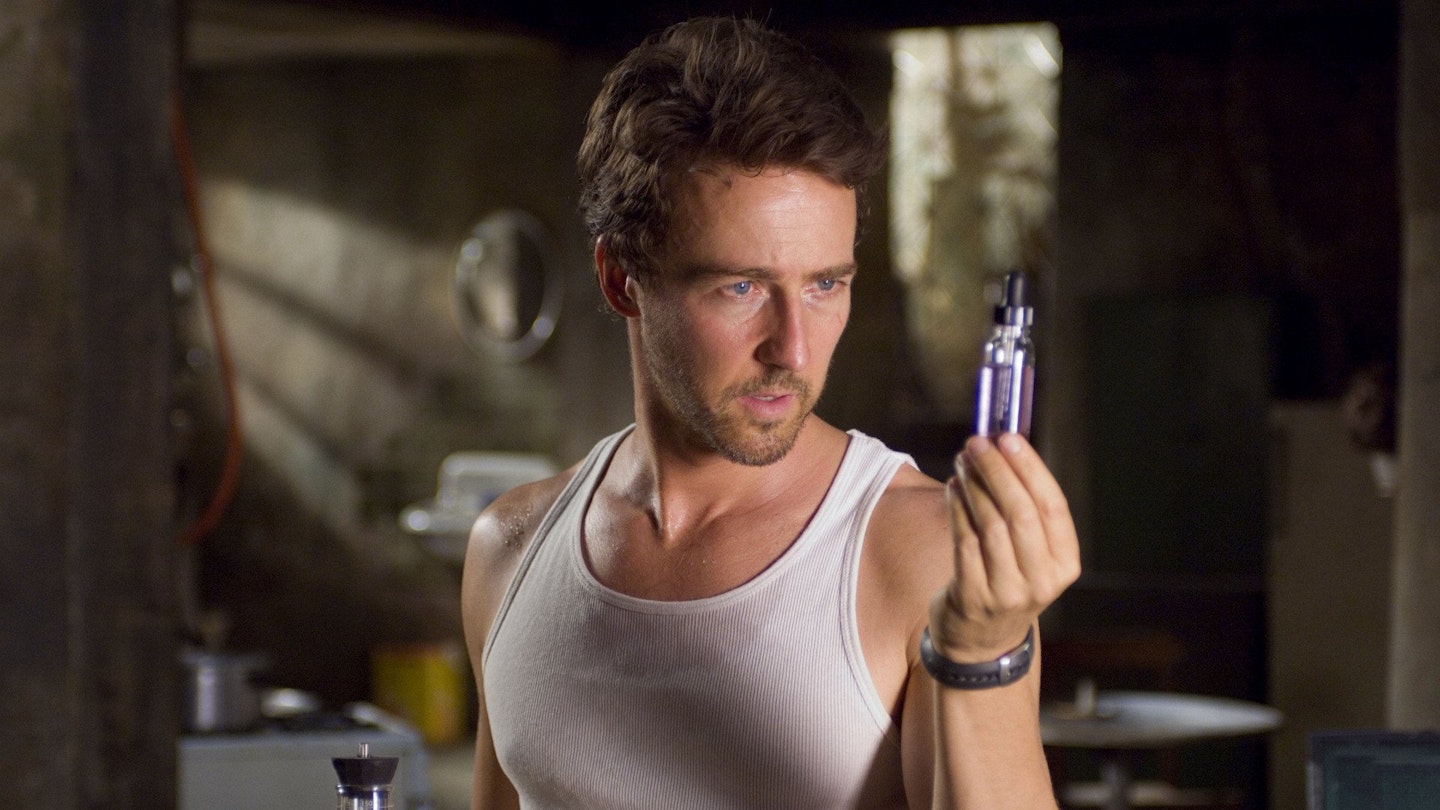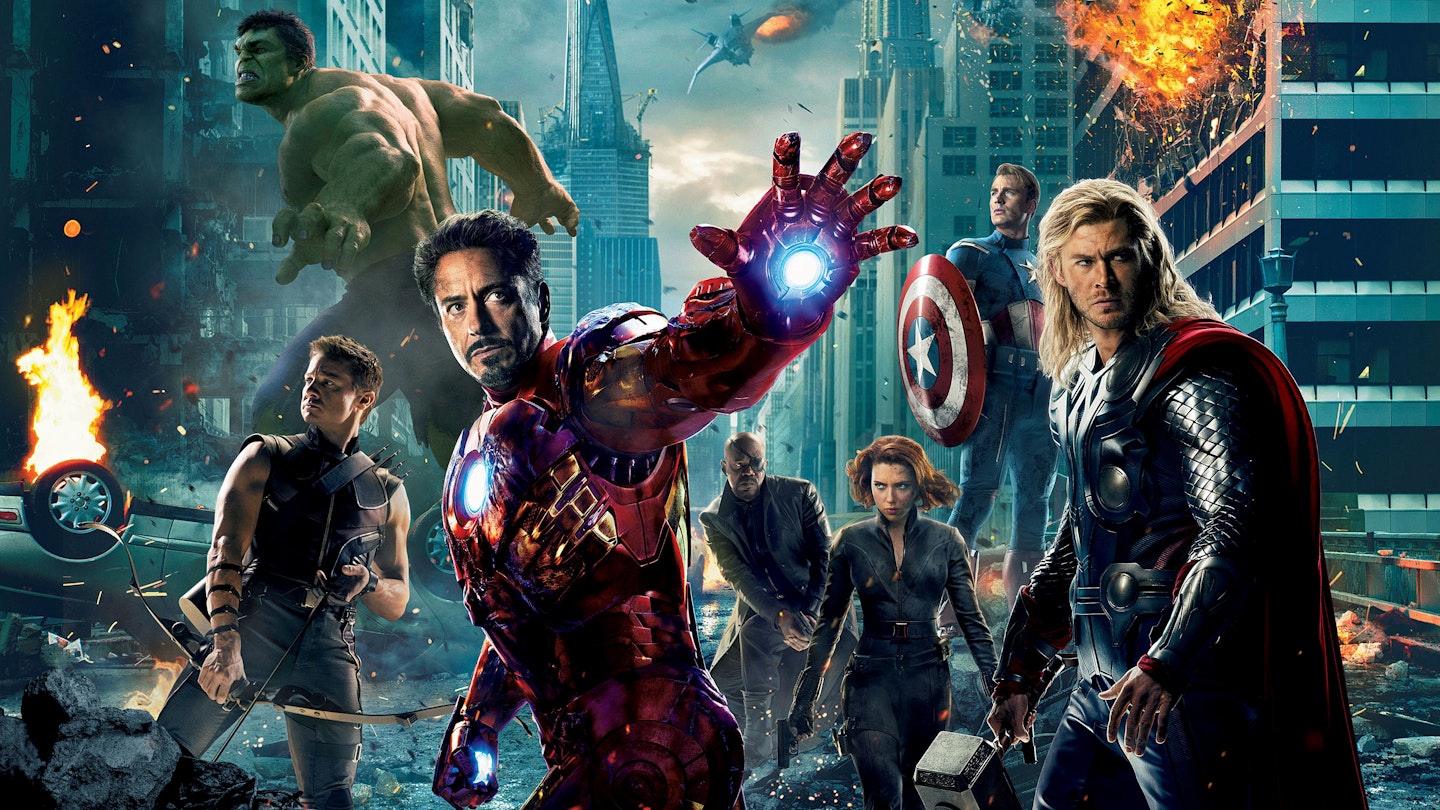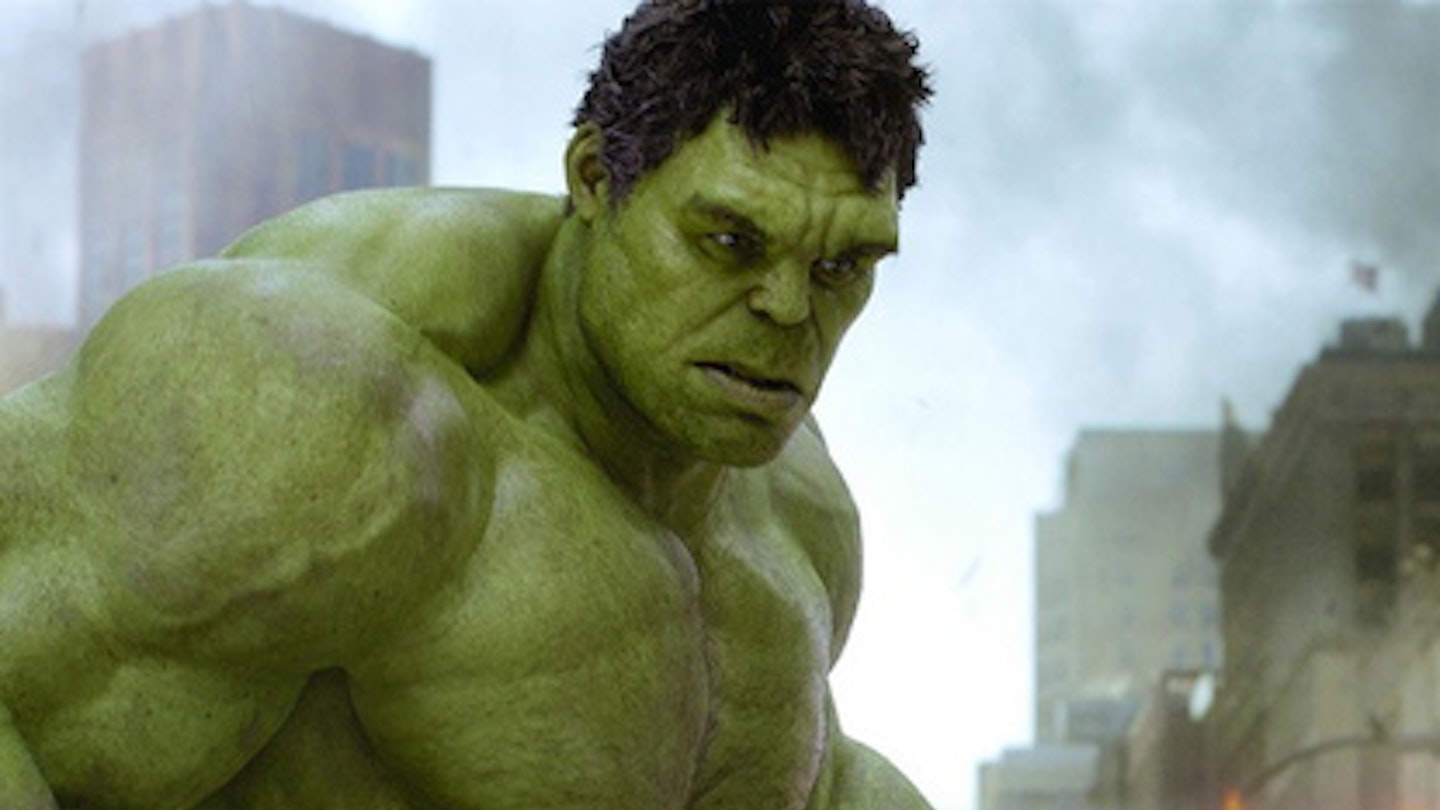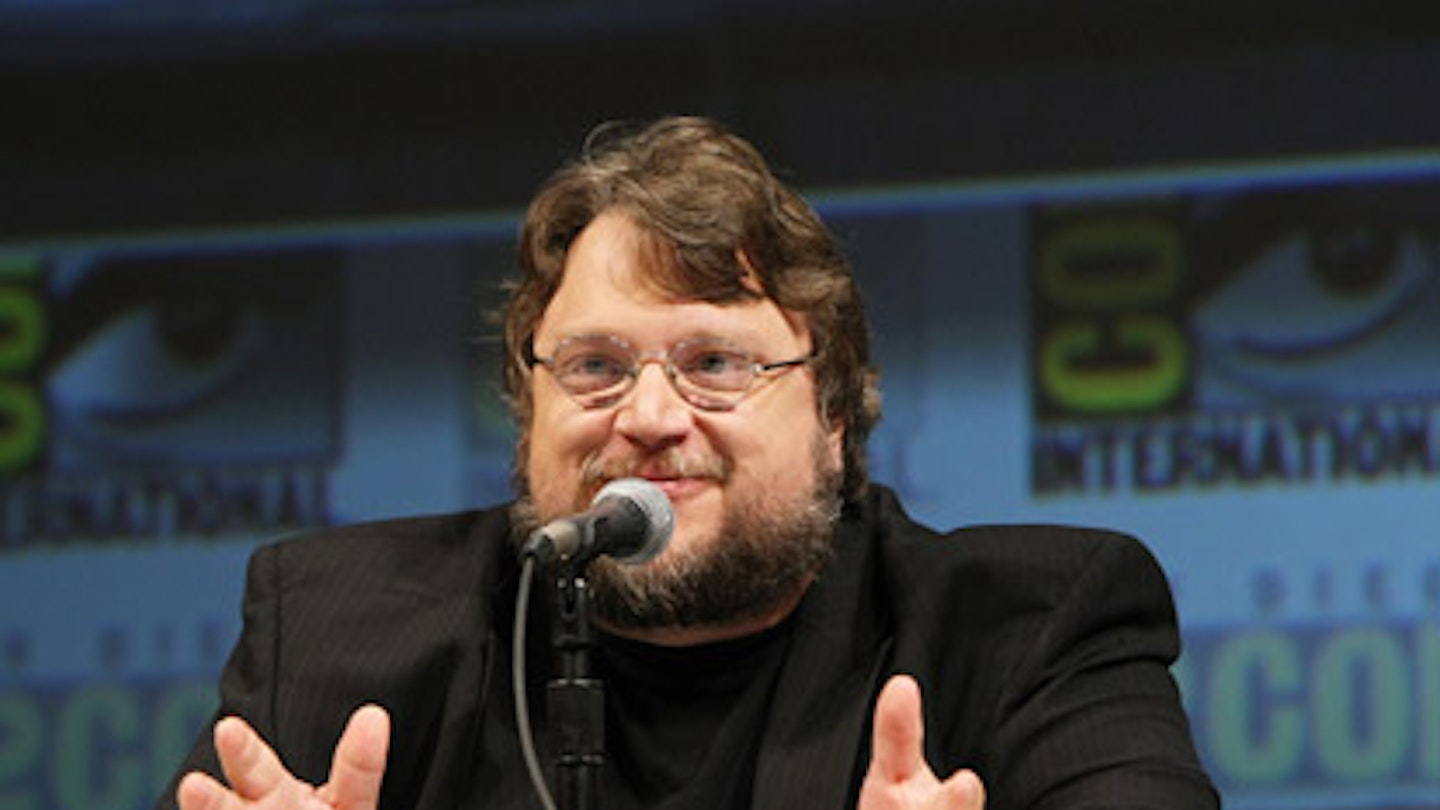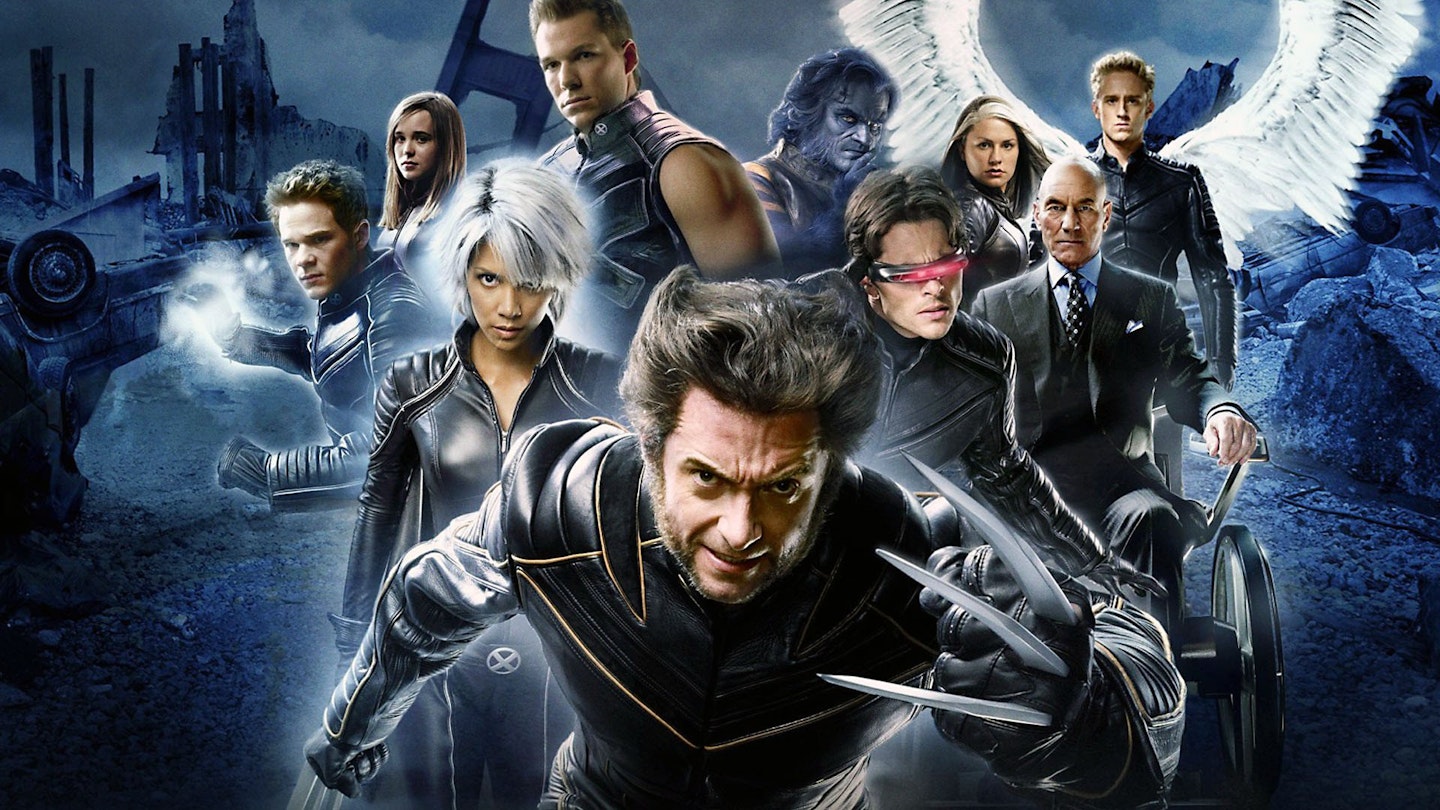In what is probably the most hotly anticipated adaptation of a 'graphic novel' since the last one, director Ang Lee sets out his stall from the first frame.
In a bravura statement of intent, he whips through the expositional opening passages, wherein crazed genetic scientist Dr David Banner realises he has passed his self-mutilated genes on to his baby son Bruce and an unspeakably traumatic domestic disturbance ensues. Using every trick in the Exhibitionist Director's Handbook, Lee pushes his Avid to the point where you want to scream, "Leave that poor digital editing suite alone!"
A combination of antic split-screen, wipes, cut-outs, overlays, match shots, collages, freeze-frame and artificial crash-zooms energetically mimic the dynamics of comic book art. At certain points, he even pans between individually framed panels of action as if the camera is scanning a page. The ploy becomes slightly intrusive as the film progresses, but it sets the tone brilliantly, as does a mise en scene[italics] that ranges from full realism to slightly off-whack to outright surreal, with some disquietingly vivid dreamscapes thrown in.
What is so effective about this is that it nullifies the material's inherent absurdities by tackling them on their own turf. Just as Tim Burton's Batman did, albeit more literally, it creates a universe uncannily close to our own, but one in which plausibility becomes irrelevant. It also allows the film to explore some surprisingly dark psychological corners without fear of looking ridiculous.
That's further helped by a cast of actors skilful enough to deliver comic book dialogue as if they mean it. Bana is perfect as the remote, damaged Bruce Banner, a sensitive, intelligent man who has a beast within him so terrible he daren't unleash it, but who gets off on the release whenever he does. Connelly - with her vast, soulful eyes, in which tears brim and spill over precisely on cue - invests an invariably thankless role with poignant grace, while Sam Elliott (as a hard-ass Marine general) and Nick Nolte (as David Banner) have fun seeing who can growl the best. It's a tribute to whatever hard living Nolte has been doing lately that he actually wins.
All of this would come to naught, of course, if the Big Green Man came over like Jar Jar Binks on steroids. Thankfully he does not (although he does look a bit like Brendan Fraser). We might look back on him in five years time and cringe - hell, we might look back on him in six months and cringe - but for now, Hulk is the benchmark for a fully integrated CGI character. Glimpsed out of context in the trailers, he had us worried.
In Lee's artfully created environment, he works a treat, and the fact that he doesn't look quite real only adds to the larger-than-life effect. Whatever he's doing - smashing whole buildings to atoms, pummeling le merde out of a mutant French poodle, twirling tanks around like an Olympic hammer thrower or biting off the business end of a Stinger missile and spitting it back at the helicopter that fired it - he's absolutely the star of the show, a rampaging force of nature, an indestructible pea-green id.
There's an occasional iffy moment but, for the most part, Lee is careful to keep Hulk a blur of furious motion, which is what we came for anyway. There are some more subtle touches too, visual echoes of '50s sci-fi and sly references to Frankenstein, American Werewolf and, of course, King Kong.
The ending is over-ambitious and the film drags occasionally when Hulk isn't centre stage. But overall, this is outstanding entertainment. The only real disappointment is that we never find out where Banner gets his infinitely expandable purple boxers. Perhaps we should just be grateful that he does.
